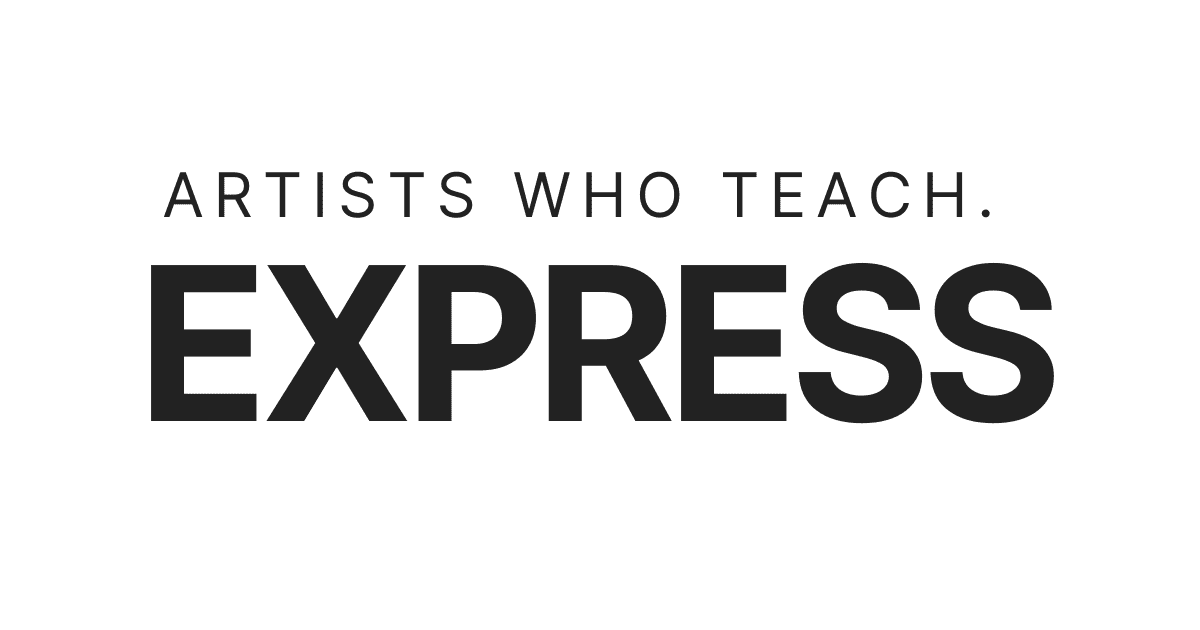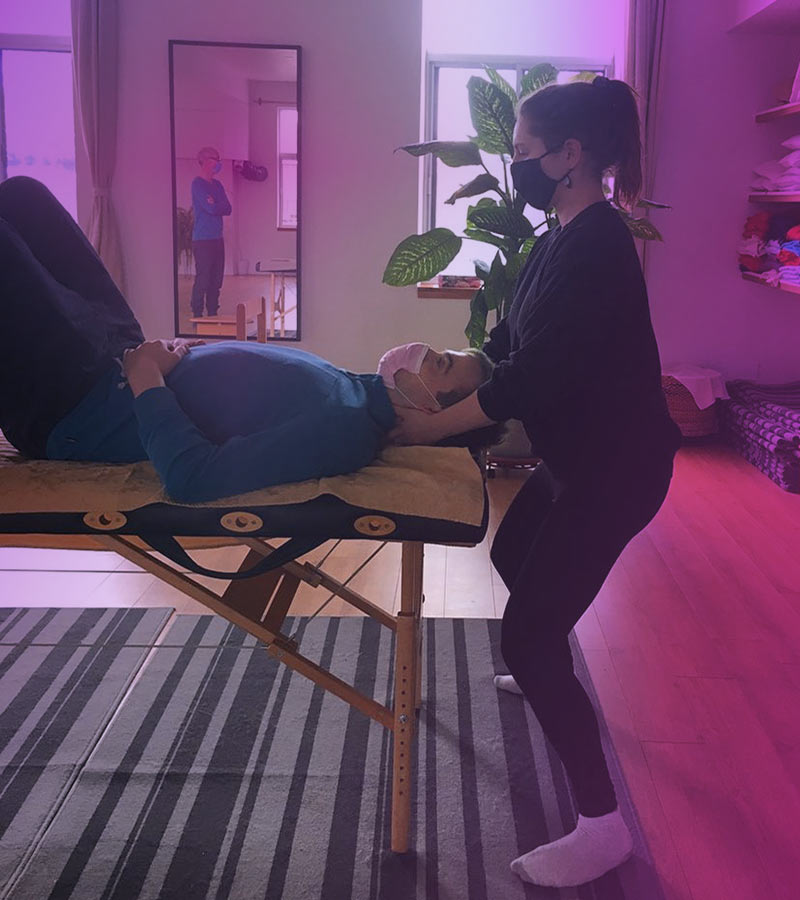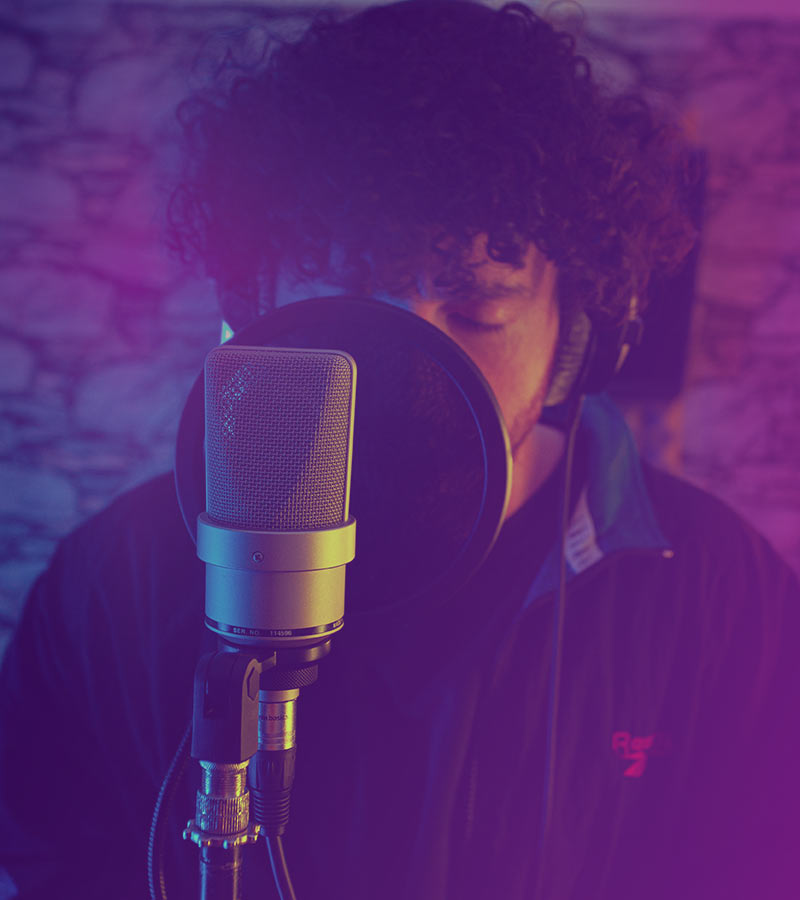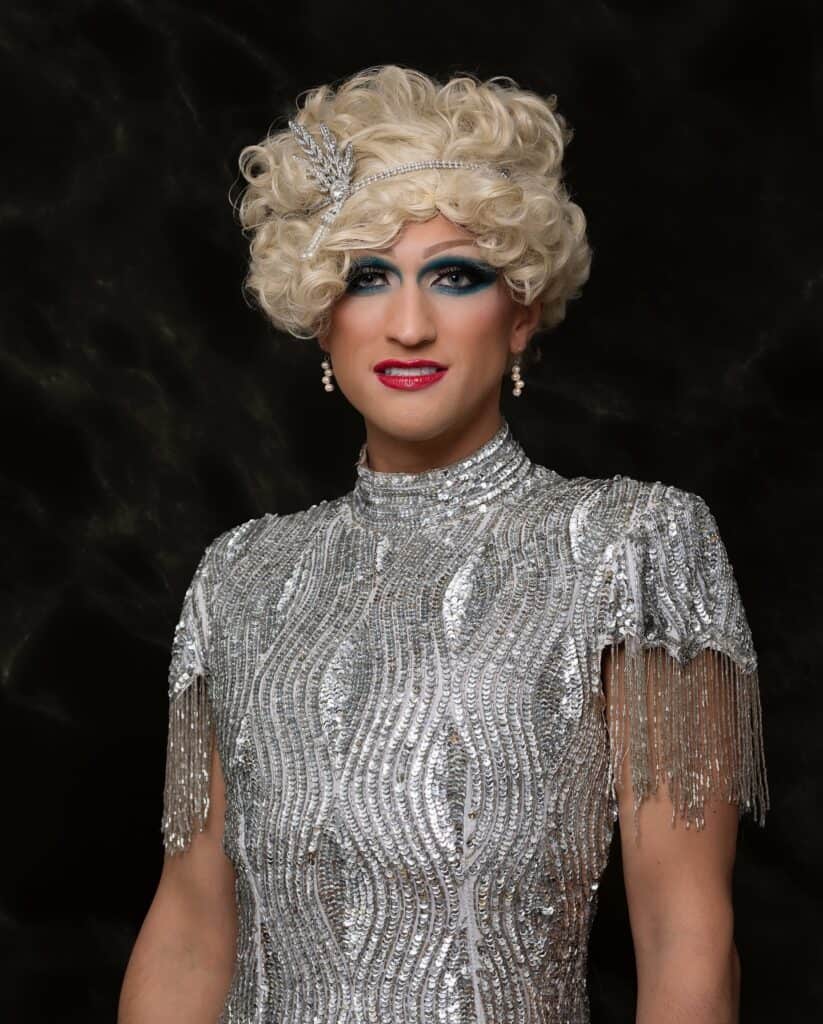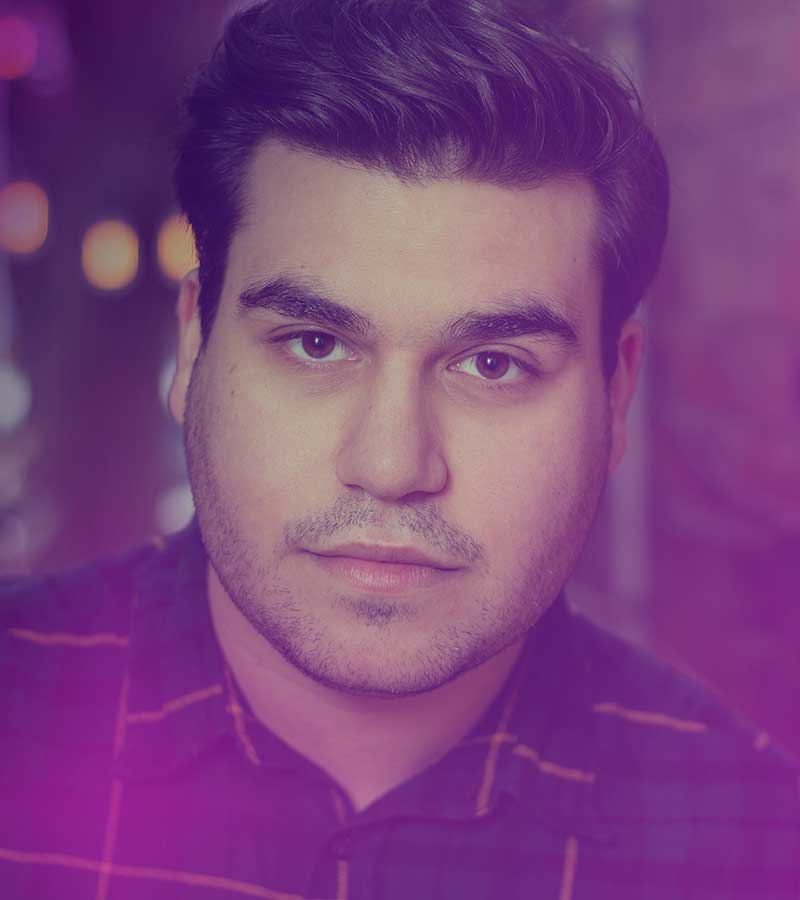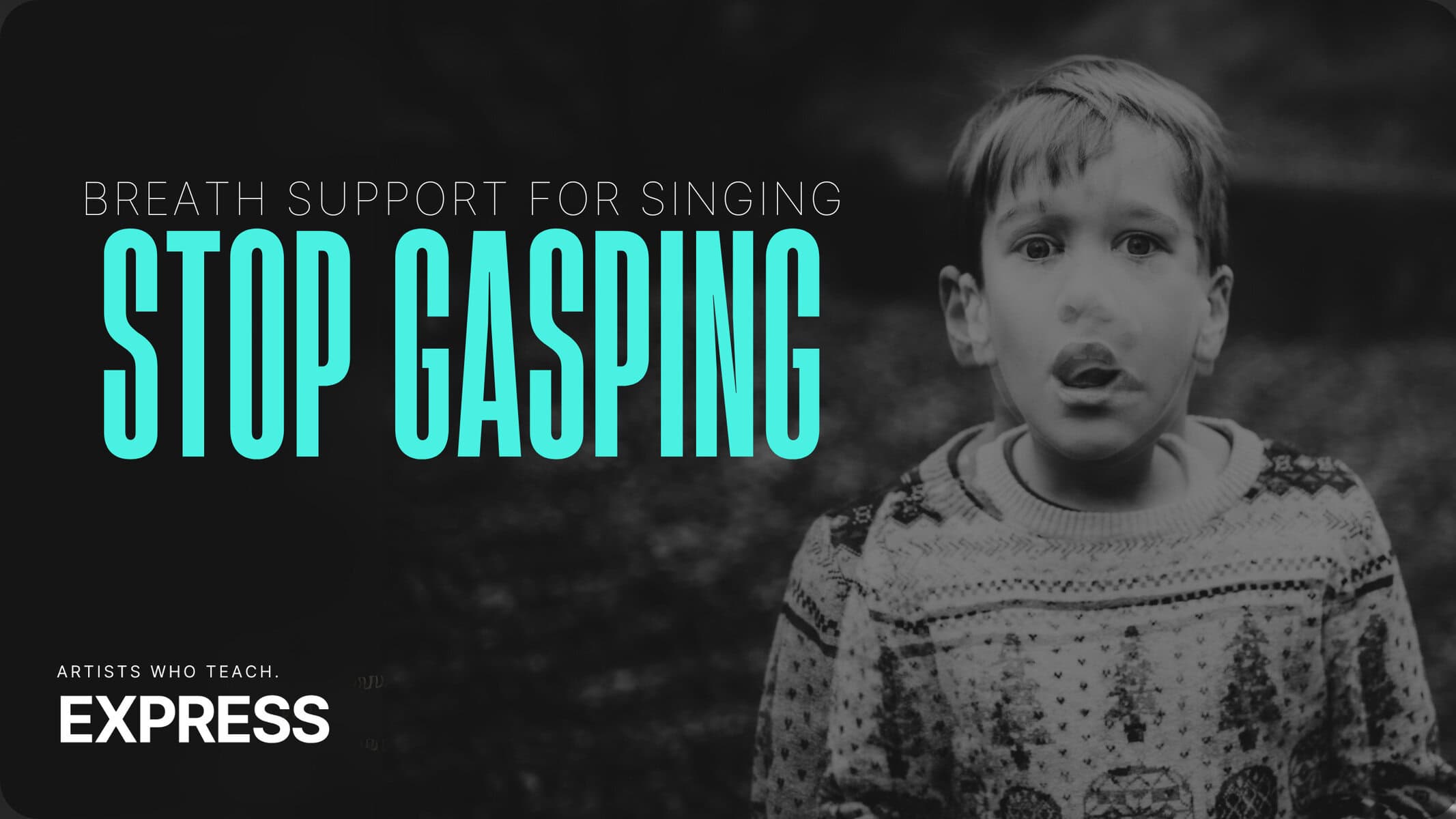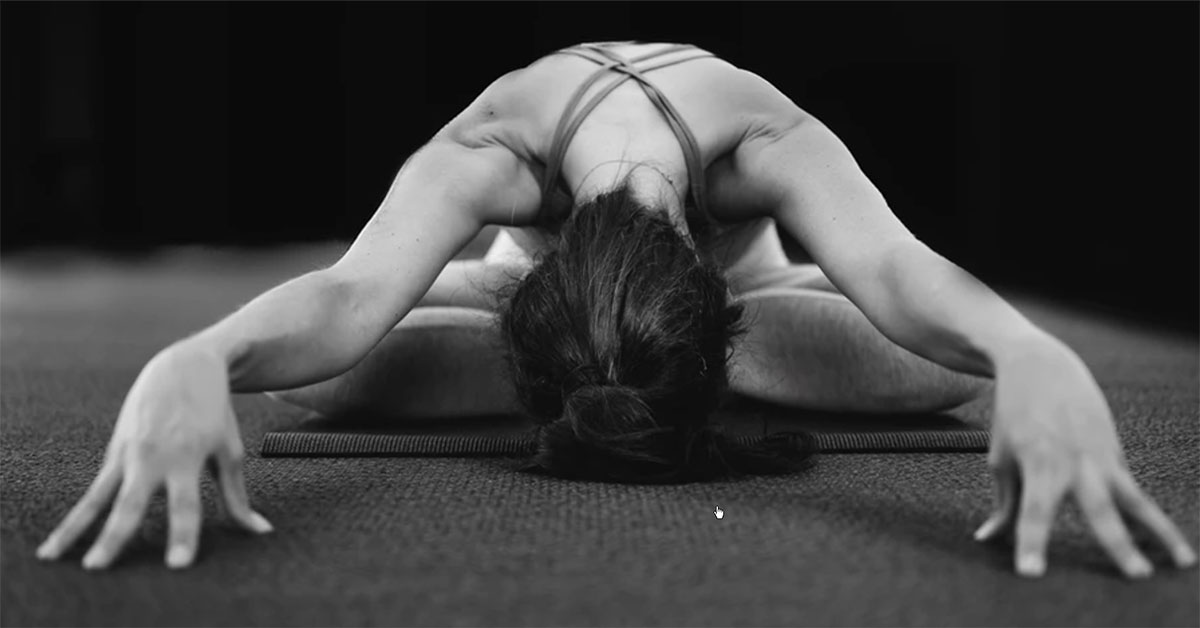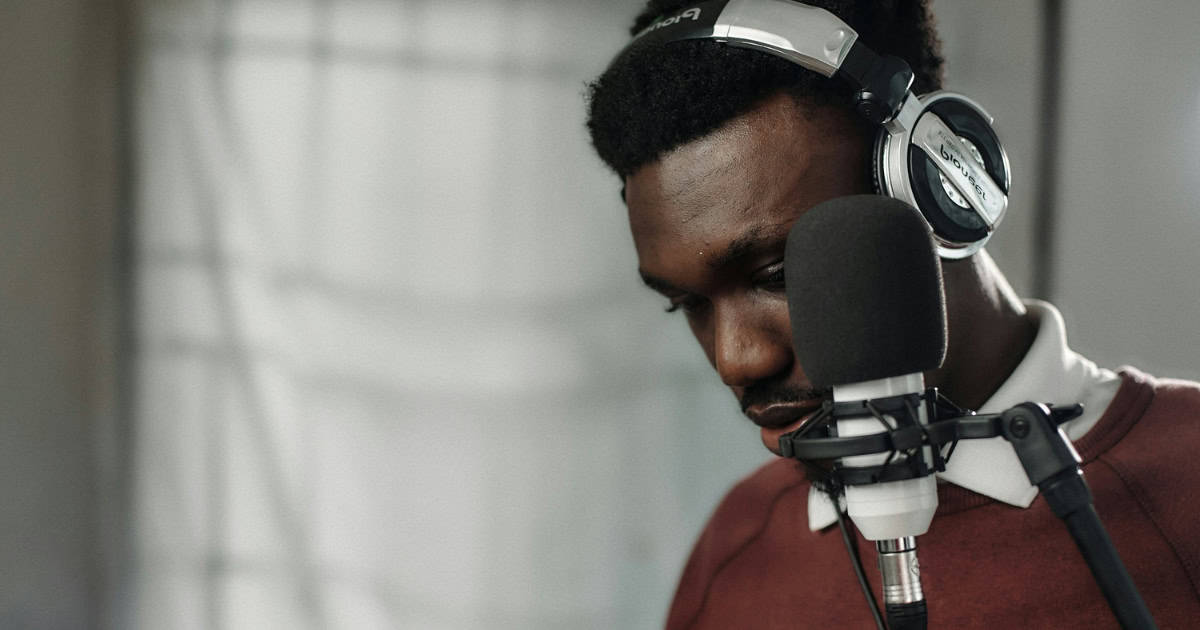Table of Contents
One crucial aspect of singing that often perplexes aspiring vocalists is the concept of singing from the diaphragm. There is a vast supply of breathing exercises online, but take it from a lifetime of singing and teaching- the application of free singing videos can actually hurt your singing technique if you don’t understand some foundational elements of the voice and anatomy.
Singing “with support” is not just about deep breaths or remembering to inhale deeply: When you sing properly, the function of diaphragmatic breathing as a wholistic act of relaxation and proper muscle engagement is so deeply memorized by your body that you don’t even have to think about it! In this article, we will delve into the meaning behind singing from your diaphragm, how this vital muscle functions during singing, and three simple tips to help you improve your vocal technique.
So lets get into it and learn how to sing from. your diaphragm!

What Does it mean to sing from your diaphragm?
Diaphragmatic Singing As Anatomical Function
The phrase “sing from your diaphragm” is a common directive in vocal coaching, but what does it actually entail? The diaphragm is a large, dome-shaped muscle located beneath the lungs. Singing from the diaphragm means utilizing this muscle to control the release of air while singing, resulting in better breath support, resonance, and overall vocal control.
It can be very useful to understand that the diaphragm actually sits below the lungs. So when you think of expanding your body on the inhalations, know that your back and ribs all need to have malleability to move and make space for the air and diaphragm. More air does not necessarily automatically make your body expand in the right places; many people find their stomach moving but cannot sense their back and ribs moving. When you sing, start to know that the act “to sing” could also be interpreted as, “to expand.”
If you take away one thing from this article, let it be that you make peace with this fact: It is extremely important to work on your posture, alignment, and body awareness in order to sing properly- and this can take considerable time depending on your current habits and natural abilities.
How A Vocal Coach May Explain What It Means To Breathe Correctly
True deep breathing as it is used by singers is about more than contracting your abdominal muscles like when you’re at the gym, and it requires more than in depth anatomical awareness. Actually, many great singers are not experts in anatomy! Beyond its physiological implications, singing from the diaphragm is often described by experienced vocalists as a sensation of harnessing power and control.
It involves a conscious effort to engage the diaphragm to regulate the airflow, an action that requires practice not just for muscle memory, but to strengthen the ability of the diaphragm to assist in long phrases and supporting high and low notes. The concept of a “shallow breath” also changes in the eyes of a professional singer.
When we refer to shallow breaths, we mean a breath that is created with tension, usually limited to the stomach area and lifting of the thoracic cavity and shoulders, and requiring tension to control on the exhale. In fact, a deep breath could actually be called a shallow breath when done incorrectly, with the added issue of “tanking up” which demands your transverse thoracis muscle to act on the exhale as it does in forced exhalation such as when we cough.
How The Diaphragm Muscles Allow Resonance
Singing with proper singing technique means singing with diaphragmatic breathing. This technique allows sound waves to reverberate through the chest cavity, creating a warm and well-projected vocal quality. The reason for this is that the diaphragm acts as a dynamic amplifier, relieving the body’s many unnecessary muscles from needing to support the sound, consequently enabling them to relax and transforming the body -upper chest, vocal folds, throat, face- into a space capable of reverberation. Resonance is the product of sound waves bouncing around these “relaxed spaces” and finding amplification much like when you take your cell phone and drop it in a bowl or cup to get your music to sound louder.
In essence, the directive to sing from the diaphragm encapsulates a fusion of physical awareness and artistic mastery. It is not merely about understanding the anatomy of stomach muscles and the diaphragm but also about connecting with the source of vocal power within oneself. Singers often describe this connection as a grounding force that enables them to tap into the full potential of their voice, creating a transformative and immersive experience for both the performer and the audience. It feels powerful and is worth the work to develop your lungs and support!

How Does the Diaphragm Work During Singing?
Understanding the mechanics of air movement in the diaphragm is essential for any aspiring vocalist. When you inhale, the diaphragm contracts, creating space for the lungs to expand. As you exhale, the diaphragm relaxes, helping to expel air from the lungs. Controlling this process consciously allows singers to manage their breath effectively, enhancing the quality and power of their vocal delivery.
Achieving mastery over diaphragmatic control involves a comprehensive understanding of interconnected muscle groups. More control of the diaphragm can be achieved when an aspiring singer understands the role of the back, chest, rib cage, stomach, shoulders, and abdominal muscles. The back muscles, especially the lower back, provide stability and support for the diaphragm’s upward movement. Singers should focus on allowing the back to relax and the stomach expand, on the inhale, and maintaining this expansion on the exhale.
While inhaling, the chest muscles facilitates expansive breath intake, but many beginner singers will mistake breathing into the chest space as correct inhalation. In fact, your chest should never lift dramatically- the expansion needed for space for your air should be felt in the back and through the lower ribs, with the last expansion point being the upper chest.
The rib cage, acting as a protective enclosure, expands with the diaphragm during inhalation and learning to connect with this part of your body takes practice. Laying on the ground lie flat on your back may help to start recognizing when you lower ribs- sides and back of the ribs- are moving in expansion to make room for air.
The Abdominal muscles, including the rectus abdominis and obliques, stabilize the diaphragm during exhalation, ensuring controlled airflow. This is why many people say they feel their abs really active during singing.
Relaxing the shoulder muscles prevents tension that may impede the diaphragm’s natural movement. Strengthening the transverse abdominis supports sustained breath release, preventing rapid diaphragm collapse. In layman’s terms- watch yourself in the mirror and if you notice your shoulders moving drastically up and down on your breaths, you have a lot of upper body tension impeding your breathing.
This is a lot to process, so you may want to consider voice lessons with a trained vocal coach to help you start to become a master of body awareness and vocal performance.
Basics of The Singing Voice To Know
Before delving into the specifics of singing from the diaphragm, it’s crucial to grasp some fundamental aspects of vocal technique:
Find the correct posture
Maintain an upright posture to allow for unrestricted breathing and optimal vocal projection. Use a mirror to start watching how your body moves when you breathe. For beginners, we recommend trying breathing while lying on your back with your shoulders relaxed, knees bent and feet on the ground. This allows you to feel the movement of your back and ribs better while minimizing the movement of the shoulders.
Keep your throat open when singing
Tension in the throat can impede the flow of sound. Keep your throat relaxed and open for a smoother vocal delivery. Of course, this is easier said than done since once we develop tension, it is incredibly stubborn to get rid of. A vocal coach can work with you on relaxing undue tension and put you on track to becoming a better singer.

3 Tips on Singing From Your Diaphragm
Now, let’s explore three practical tips to help you sing from your diaphragm!
1. Strengthening Your Diaphragm for Better Breathing
Engage in exercises that specifically target the the diaphragm muscle. Deep belly breathing, yoga, and diaphragmatic breathing exercises can help strengthen this muscle, leading to improved breath control while singing. The truth is, this is a muscle: You will need to start paying attention to how you breathe throughout the day and actively putting time aside to work on taking deep breaths and controlling the exhalation.
Whether you choose yoga, meditation, or guided youtube practices, here is a hot tip: On your exhale, focus on pushing down through the pelvic floor to control the speed of your exhale. You know that feeling of pushing you have when giving birth your- excuse our language- have a really stubborn poop to push out? Those are your pelvic floor muscles, your Psoas, and your abdominals and back all engaged, and the sensation mirrors what it feels like to control air pressure and supply on the exhale.
2. Begin to expand your lung capacity
Enhance your lung capacity by practicing controlled deep breaths. Inhale deeply, expanding your lungs to their fullest, and exhale slowly. This helps increase the amount of air you can hold, providing a solid foundation for powerful singing.
Keep in mind our previous tip on the exhale, and trip this:
Inhale for 4, exhale for 4
Inhale for 5, exhale for 5
Inhale for 6, exhale for 6
Continue this until the length of time is not attainable and start your singing practice each day with this exercise.
3. Incorporate lip trills with your breathing exercises
Lip trills involve blowing air through slightly pursed lips, creating a vibrating sound. This exercise not only aids in breath control but also helps you connect with your diaphragm. Practice lip trills while moving through different vocal exercises to integrate lip trill and diaphragmatic engagement into your singing.
Make sure that you do not tense your jaw in order to create the trill. This exercise is great, but also very commonly difficult for beginner singers. Try to be super patient and invite the trill to start, but don’t tense your face or jaw in order to achieve it. Keep exhaling and relaxing your lips, mouth and jaw. Eventually the buzzing and trill will come naturally.
How to Sing from the Diaphragm – Basics to Remember
Know what muscles to activate
Consciously engage the diaphragm by focusing on the sensation of breath originating from the lower abdomen. This ensures that you are using the diaphragm effectively to control airflow.
Watch for expansion in your back and ribs. Ask a singing teacher to help you when you first start singing.
Sing Long, Sing Strong.
Extend your vocal phrases to encourage sustained, diaphragmatic breath engagement. Singing longer phrases challenges your breath control and strengthens the diaphragm over time. Try singing phrases from songs you are working on with just vowels or on lip trills so that you can focus on the breath and not have the words and their many consonants getting in the way. It can be just too much to focus on at one time when you are trying to improve correct breathing.
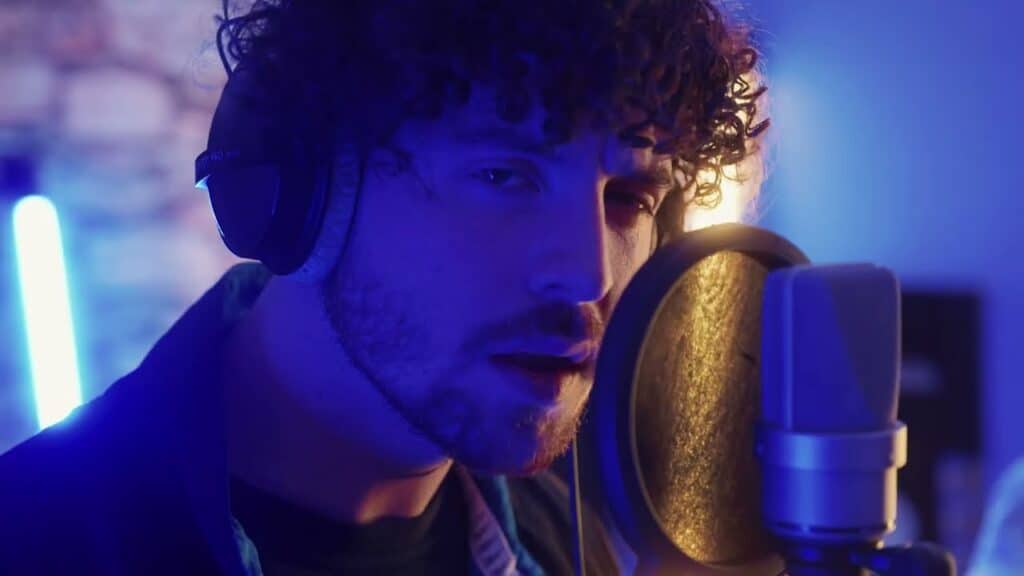
Are You Ready to Improve Your Breath Support?
Mastering the art of singing from the diaphragm is an ongoing process that requires practice and dedication.
Consistent incorporation of these tips into your vocal routine will contribute to enhanced breath support, resonance, and overall vocal performance.
Want to Learn More Vocal Cords?
Understanding the intricacies of vocal cords is another crucial aspect of honing your singing skills. Many singers don’t even think about how to care for their vocal cords until there is a problem!
Practice singing with a qualified teacher and have them create a practice regimen for you so that you can track your progress and vocal exercises. We recommend a journal designed for singers so you an track the growth of your vocal range, the work you do with your singing teacher, and specific work you are doing for technique and application of those techniques to your songs!
Want More Vocal Exercises?
Make sure to check out our Tiktok and Instagram where we post free content from artists on our roster. The best answer will always come from someone who has been through it!
Also check out The Singer’s Tension Podcast for more free content on the music industry!
